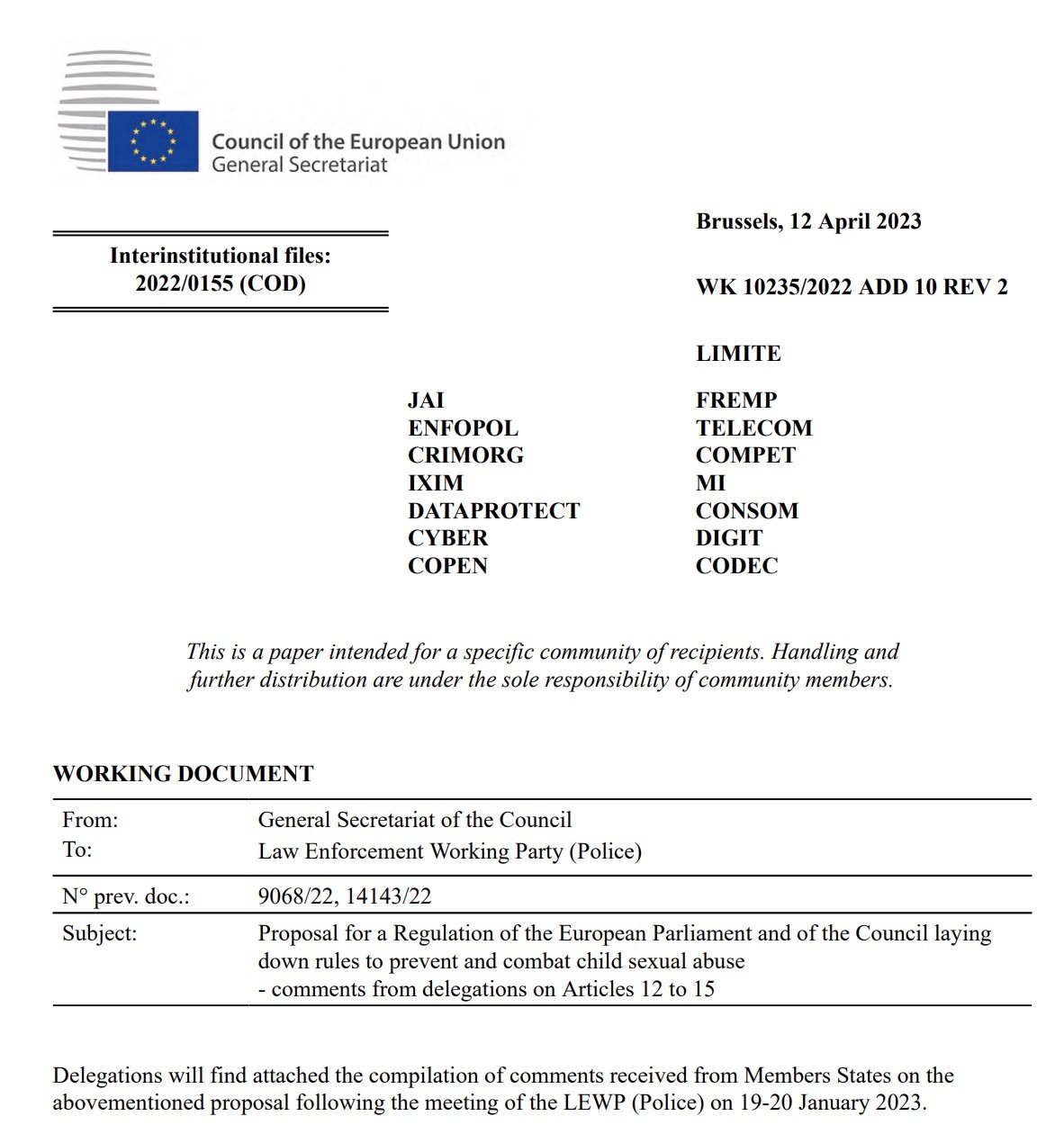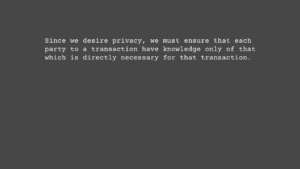A leaked document of the European Council survey shows that European member states are plotting to end privacy for all citizens in the European bloc.
The leaked document showed that Spain strongly supports banning end-to-end encryption, a measure that has been proposed to fight the spread of child sexual abuse material (CSAM), even though German police surveillance data shows that surveillance orders are issued in regards to drug-related crimes, and not to protect children.
The measure would end privacy for all citizens in the Union, and comes as part of a broader regulatory crusade against fundamental human rights detailed in the European Charter of Fundamental Rights of the European Union.
Breaking encryption – ending privacy
The proposed law would require tech platforms to scan encrypted communications, something tech experts have warned is not possible without breaking the encryption.
The document, obtained by Wired, shows that Spain’s position on encryption is the most extreme and concerning.
Spanish representatives say that “Ideally, in our view, it would be desirable to legislatively prevent EU-based service providers from implementing end-to-end encryption.”

End-to-end encryption ensures that only the sender and receiver are able to view the contents of a message, as is their right. Not even the platform owner has access to the communications content. The Signal messaging app provides such a service completely free from government or malicious actors potentially snooping around.
Per the report, of the 20 member countries represented in the survey, 15 support banning end-to-end encrypted communications. Poland suggested introducing measures that would allow a court to lift encryption, and for parents to be allowed to decrypt communications of their children. This would involve a back-door – breaking the encryption and opening up a pandora’s box for human rights violations in the Union comparable to Communist China.
Croatia’s representative said:
It is of utmost importance to provide clear wording in the CSA Regulation that end-to-end encryption is not a reason not to report CSA material.
Romania said: “We don’t want E2EE encryption to become a ‘safe haven’ for malicious actors…”
Slovenia said, “Detection orders must necessarily also apply to encrypted networks.”
Ireland and Denmark want messages scanned for CSAM without banning end-to-end encryption. This is not technically possible. Worse still, the Netherlands proposes installing spyware on devices before the data in encrypted to send to a recipient.
“There are … technologies which may allow for automatic detection of CSAM while at the same time leaving end-to-end encryption intact,” the country’s representatives said.
Hungary and Cyprus supported the proposal as it would help law enforcement.
Italy, Germany, Finland and Estonia are also against end-to-end encryption, much like Chinese Communist Party’s surveillance state regime. Germany said it would not support a law that allows technologies that would circumvent, modify, or disrupt encryption.
Finland told the EU Commission to find solutions to fight CSAM without undermining encryption.
Estonia cautioned against the measure, noting that obliging companies to scan encrypted messages would result in companies exiting the European market.
Italy said the proposal would “represent a generalised control on all the encrypted correspondence sent through the web.”
EU’s Crusade against privacy
For years, the EU has debated whether end-to-end encrypted communications such as Signal or Whatsapp should be protected as a fundamental right to privacy. The idea for breaking encryption is built on the premise of safety and security for supposed vulnerable groups, including children. However, it is generally accepted that it is not the state’s business to protect children, but the parents or guardians, who can take measures with far greater efficacy than blanket state actions which violate individual privacy rights ever could.
In 1993, American mathematician and programmer, Eric Hughes, wrote the ‘cypherpunk manifesto‘, in which he detailed how privacy is both desirable and fundamental to an open society.
We must defend our own privacy if we expect to have any. We must come together and create systems which allow anonymous transactions to take place. People have been defending their own privacy for centuries with whispers, darkness, envelopes, closed doors, secret handshakes, and couriers. The technologies of the past did not allow for strong privacy, but electronic technologies do.
The leaked document outlines an ongoing regulatory crusade against European citizens and their fundamental rights which are unambiguously codified in the Charter of Fundamental Rights of the European Union as well as in Western constitutions.
If successful, the end result of these various encroachments on liberty is a Union where all communications are surveilled, cash transactions are no longer available, and a centrally controlled CBDC Euro-coin with direct capital controls is enforced en masse.
This begs the question(s): are these laws and proposals truly aimed at protecting the vulnerable? Does the European Union have any business spying on individual communications? Is every citizen in the European Union a suspected child rapist until proven innocent by EU-approved monitors? Is the premise of the rule of law ‘innocent until proven guilty’ or ‘guilty until proven innocent’? And finally, does the Charter of Fundamental Rights of the European Union exist solely as a document to pay lip-service to?
Join the telegram channel for updates, charts, ideas and deals.
Did you like the article? Share it!


